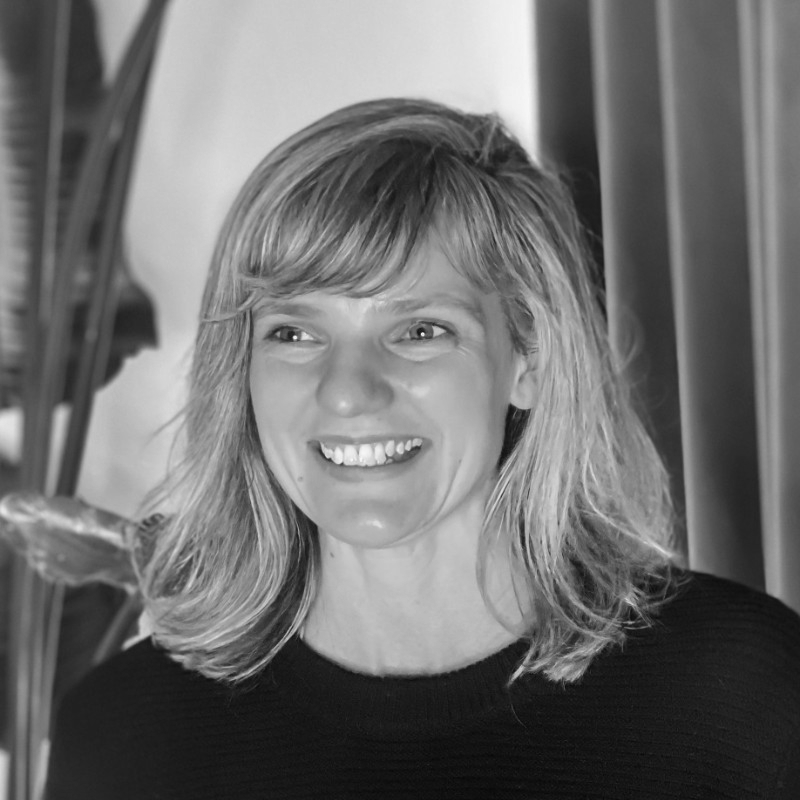
ASKING FOR A FRIEND
How do I speak up in meetings?
ASKING FOR A FRIEND - QUESTION
Feel like you need a megaphone just to get a word in during meetings? Dr Aileen Alegado, clinical psychologist and Director of Mindset Consulting, offers the perfect analogy: "Don't go to the butcher to find seafood"—sometimes you need to create alternative spaces for your ideas to flourish. Meanwhile, Regina Stroombergen, Head Creative Tinker at Thinkerbell, reminds us that quality trumps quantity when it comes to meeting contributions. Both experts tackle the challenge of how to speak up in meetings with practical wisdom for creatives who aren't naturally the loudest voices in the room but have plenty of valuable things to say.
Meetings can be challenging spaces—especially if you’re naturally more reserved, or working in a culture where the loudest voices dominate. When you have something thoughtful to say but struggle to find space to say it, meetings can shift from being opportunities for collaboration to sources of quiet frustration.
This question speaks to something many creatives experience: how to get your voice heard without having to shout over everyone else. Whether you’re up against fast-talkers, big personalities, or just an environment that doesn’t seem to value quiet insight, finding ways to speak up (and be taken seriously) is a skill worth building.
To explore this, we turned to Dr Aileen Alegado, a registered clinical psychologist and Director of Mindset Consulting with over 15 years' experience helping professionals navigate workplace dynamics, and Regina Stroombergen, Head Creative Tinker at Thinkerbell, who’s worked across creative teams in Melbourne and London. Hosting the discussion is Andy Wright, Founder of Never Not Creative, Co-Chair of Mentally Healthy, and CEO of Streamtime.
Understand different communication styles
Dr Aileen begins by unpacking two common barriers:
"I'm going to break it down into two things... the first thing I heard is that there is a culture that if you did speak it's probably not even going to be taken on board... and then the second is more like if there was even space for that."
In environments where your way of communicating isn’t valued, she advises stepping back and asking: what are you actually hoping to get from this space?
"This is not something that is in this particular setting valued and so for this person... I say to people, don't go to the butcher to find seafood."
Her advice?
"It’s about being creative—as creatives, be creative—in having those needs met and probably creating alternative places or sources for that to happen."
Sometimes the key isn’t pushing harder to be heard in the wrong room. It’s finding a different room entirely.
Find strength in collective action
Dr Aileen also suggests you might not be the only one feeling this way:
"With a group or community that probably feels just as frustrated... multiple heads are better than one."
Speaking up alone can be tough. But when others are facing the same challenge, there’s potential for collective change—whether that’s shifting how meetings are run, or advocating for new communication norms together.
Adapt your communication to the culture
Dr Aileen encourages observing what’s actually valued in your workplace, and working with it (not against it):
"Perhaps understand what is the social capital or what is the language that is understood in this culture... how can I creatively insert agendas and things that benefit me in a way that they can understand or will be valuable for them?"
This isn’t about abandoning your voice. It’s about translating your message into a format people are more likely to hear.
Quality over quantity in contributions
Regina offers a comforting truth for quieter contributors:
"In meetings you don't have to be the one who's the loudest to sort of make the most valid points... the person who's loud and saying all the things often waffles a lot."
Sometimes it’s the quietest person who shifts the conversation with one well-timed point.
"You can be quiet and then say things when you really need to that are succinct and good and then people will respect that and take notice of that."
The goal isn’t to take up more space. It’s to make the space you do take up count.
Create dedicated space for creativity
Not all meetings are designed for creative thinking—and Regina highlights the need to protect time for deeper ideation:
"Kind of just got to block those spaces out and make sure that they're kept free... if you make boundaries around when you're needing creative time other people respect those and don't try and interrupt."
If meetings feel rushed or transactional, create separate time and space for the work that needs more headroom.
Recognise different personality types
Andy brings personality types into the conversation:
"It's definitely hard to try and change a culture... one thing we've been doing recently is personality types at work... there are people who are going to be very off-the-cuff... but also there's people who are just as good... who need to participate, take it all in, go away, come back with their thoughts."
Not everyone thinks on their feet—and that’s OK.
"Trying to help your boss or someone else understand that... can help (but can also be quite challenging)."
You don’t have to force yourself into someone else’s communication mould to be taken seriously. But helping others see that different styles have equal value can make a difference.
Consider alternative meeting formats
Andy suggests trying new ways of structuring meetings to create more space for quieter voices:
"A book called Brave New Work... talks about progressive cultures and how we work together... it’s really quite interesting and could be something that you could ask your workplace to try around how ideas get raised."
Reworking how decisions are made in meetings can ensure everyone—regardless of volume—gets heard.
When you need additional support
If the stress of speaking up (or feeling unheard) is affecting your mental health or career progression, it’s completely valid to seek support. Not being listened to is exhausting—and can chip away at your confidence over time.
Our help section has 24/7 access to professional mental health services if you're feeling stuck, burnt out, or anxious.
Connect with peers who understand
Finding your voice becomes easier when you're surrounded by people who see you. NNC Circles are small, confidential peer support groups designed for creatives navigating challenges like confidence, communication, and collaboration.
Each group brings together 8–10 creatives monthly to share real stories and explore practical strategies. You’ll have the space to talk, reflect, and connect with people who understand what it’s like to sit in a meeting, bursting with ideas—and still not get a word in.
Conclusion
If speaking up in meetings feels like a battle, you’re not alone—and it’s not a personal failing. Culture, structure, and personality all play a part in who gets heard and how. But you don’t have to shout to be respected.
Start by understanding the communication landscape you’re in. Speak with intention, not volume. And if the environment really doesn’t value your voice? It’s OK to seek out new spaces that do.
Whether you adapt your style, advocate for new formats, or gather your peers for collective change, there are ways forward. And no matter how loud—or quiet—you are, your ideas matter.
our guests
Industry Leader

Regina Stroombergen
Thinkerbell
Mental Health Expert

Dr Aileen Alegado
Mindset Consulting
Host

